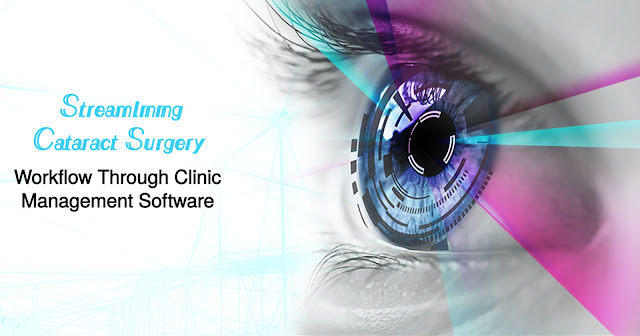Streamlining Cataract Surgery Workflow through Clinic Management Software

Cataract surgery is a proven procedure or surgery that is carried out to treat and restore vision in patients with cataracts, the medical condition of experiencing a clouding of the eye’s natural lens. Eye hospitals are buzzing with people who need treatment for ailments that occur mostly as a result of aging. Currently, these hospitals are embracing technology to improve surgical workflows and outcomes. If you are looking for a digital solution to handle the operations in a seamless and organized manner at your ophthalmology center, read further to discover how the Clinic Management Software helps to accomplish the same hassle-free! Understanding Cataract Surgery Cataract surgery is a transformative procedure that entails the extraction of the clouded lens and the implantation of an artificial intraocular lens(IOL) to restore clear vision, thereby improving their quality of life. With ongoing advancements in surgical techniques and technology, eye hospitals are increasingly adop...